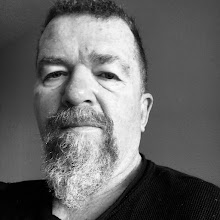I Miss My Dad
My Dad passed away three years ago, at age 90; this was the eulogy I read at his funeral. I still miss him.
I called him ‘Dad’; others had called him ‘Chet’, or ‘Van’, or, in his younger days ‘Buffalo’, for his generous head of hair.
He was born on the east mesa of Albuquerque, on the Van Cleave Homestead, in 1917, at the tail end of The Great War. His dad had been a rancher, and was thus exempt from the draft.
Dad was 12 when the well broke, and the family moved back into town.
From what he’s told us, Dad had a restless youth, and a somewhat troubled relationship with his dad. As a teenager he decided to leave home, and ended up in the Estancia Valley, on a farm of his Uncle’s.
Later in his teens Dad worked various jobs; like many young men during the Great Depression he did whatever he could, and understood the value of a day’s wage, and how important it was to work a job.
When the war broke out Dad was able to enlist in the Army Air Corp, and was trained as an aircraft mechanic. After moving around to various training assignments, he shipped out on a troop ship to Alexandria, Egypt, where his unit – an American fighter squadron – was assigned to the British 8th Army under General Montgomery, and fought General Rommel’s forces in North Africa, then up through Sicily into Italy.
Dad turned sick in the war, and was finally transferred back to the States, where he spent the remainder of the war recuperating.
After the war Dad worked for H.S. Kress, and then moved out to San Francisco in the late 1940s and worked for Woolworth’s. This was the same time that the Beats were starting their thing, the same time that Jack Kerouac was literally ‘on the road.’
Dad returned to Albuquerque from ‘on the road’ a few years later, and got a job on Sandia Base with the Base Engineers, where the secret Manzano Base was being built into the hard granite of the mountain. Dad helped set up the first warehouse system.
From that job Dad became a civil servant and worked the rest of his career with the Defense Atomic Support Agency, later renamed Defense Nuclear Agency. He set up and maintained the cataloging system used to maintain the inventory of parts for the nation’s strategic forces.
That was what Dad did. Now, who was he?
He was married, a father with three young and energetic boys, when his wife died, just before Christmas of 1962. Suddenly a widower and with the responsibility for three young boys, and a full time career, Dad struggled to make it work, finally remarrying.
And here’s the thing: Dad was a rock for his family. He was provider and father, and faithful husband, through trials and problems of all kinds.
And he didn’t permit the sort of trouble he had with his dad to interfere with his relationship with us boys. Dad turned it around, he was always patient and accepting of us, willing to give us advice but also permitting us to learn our lessons the hard way, like he had.
Dad had a strong faith but was not outwardly religious; he was patriotic but also skeptical of the empty talk of politicians.
Dad wasn’t perfect, of course; none of us are. But he didn’t permit his imperfections to get in the way, to compromise the things that were vital and important in life.
Dad was a rock; he fought the good fight; he was the solid foundation of his family.
Now we’ll have to get by with only our memories of him to shore us up. But even though we’ll miss his quiet, strong, gentle physical presence, the things that he helped build into us will carry us through the remainder of our lives. And in a sense, he’ll still be there, by what he imparted in us. And that’s the best legacy a man could hope for.

3 Comments:
I hope someday, when I die, my kids will think that highly of me.
Nice read, Joe.
What a nice tribute, and fitting that I got to your blog looking for things on my dad on the net. You wrote about my dad, Paul Namkung of Tierra Amarilla's Three Ravens Coffee House. As brilliantly as you captured my dad in your words and photos, I am happy to have the chance to learn about your father.
Joe, thank you for posting this. My dad was killed in a car accident six days ago and I really miss him. But when I read the stirring words that you wrote about your Dad, I realize that he built toughness into my brother and me also. And we will get through it in the end. But it will take time.
Post a Comment
<< Home